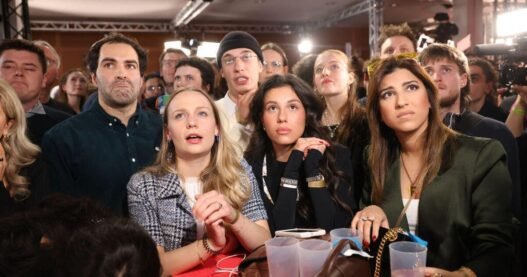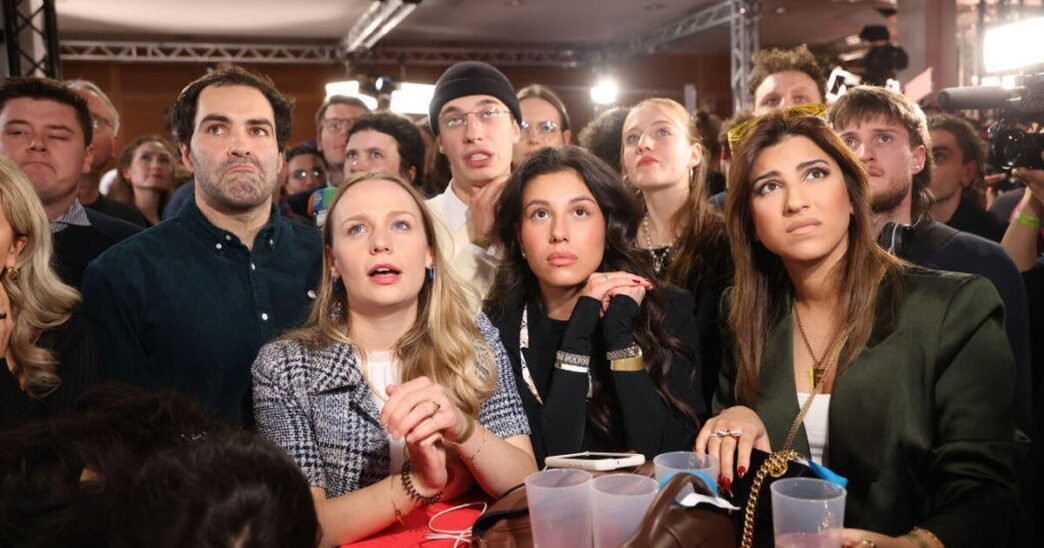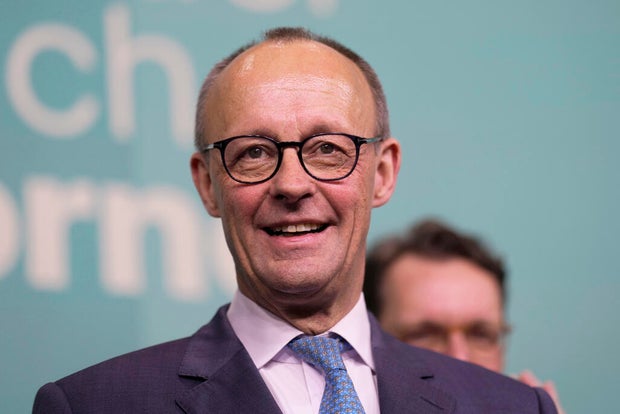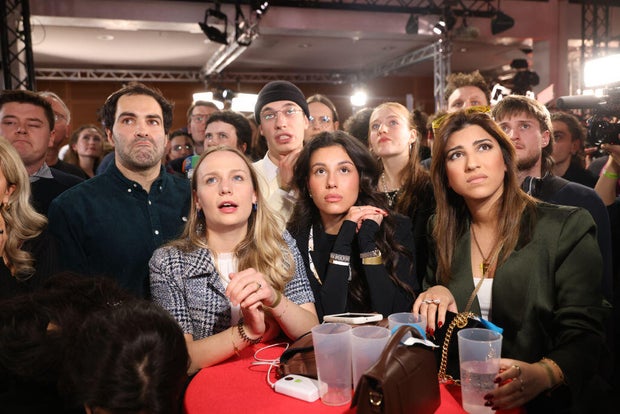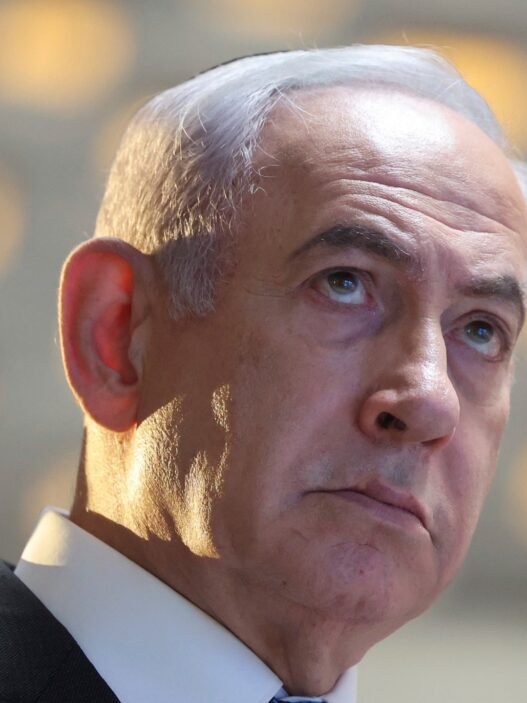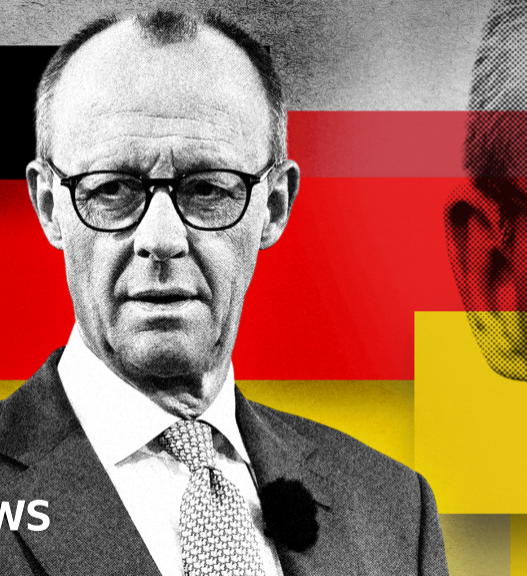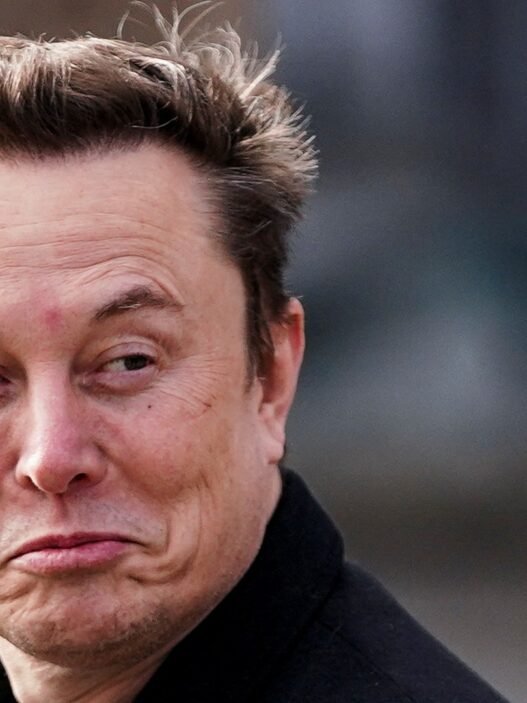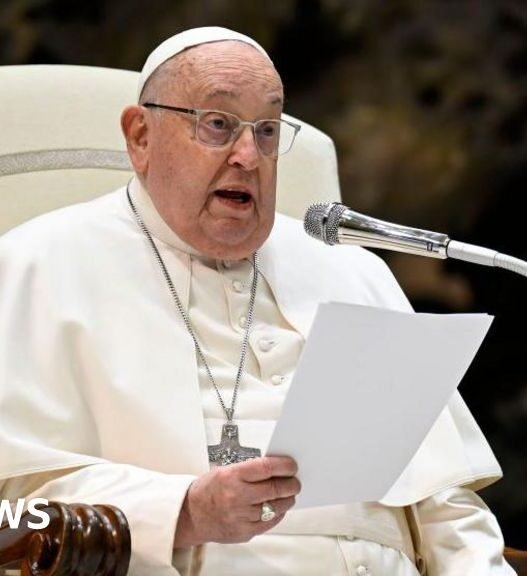German voters have chosen a new direction in a crucial federal election that will reshape the country’s political landscape.
Exit polls show opposition leader Friedrich Merz’s center-right Christian Democratic Union party leading the votes with the far-right Alternative for Germany party heading towards the strongest showing of the far-right since World War II.
Merz was quick to claim victory, saying he is aware of the dimension of the task he faces and said that “it will not be easy.”
Markus Schreiber / AP
Chancellor Olaf Scholz, whose three-party coalition collapsed in November, conceded defeat.
The exit polls for ARD and ZDF public television show Scholz’s center-left Social Democrats on track for their worst postwar result in a national parliamentary election and expected to be in third place.
The polls, issued right after the last polling stations closed, put support for Merz’s Union bloc at 28.5-29% and Alternative for Germany, or AfD, at 19.5-20% — roughly double its result from 2021.
They put support for Scholz’s Social Democrats at 16-16.5%, far lower than in the last election. The environmentalist Greens were at 13.5%.
Alex Kraus/Bloomberg via Getty Images
Out of three smaller parties, one — the hard-left Left Party — appeared certain to win seats in parliament with 8.5-9% of the vote. Two other parties, the pro-business Free Democrats and the Sahra Wagenknecht Alliance, were around the threshold of the 5% support needed to win seats.
Whether Merz, who is the frontrunner to become the next German chancellor, will need one or two partners to form a coalition government will depend on how many parties get into parliament.
Merz said he aims to put together a governing coalition as quickly as possible.
It’s unlikely that any single party will garner anywhere near the outright majority of seats in the parliament, or Bundestag, in this election that would be required under Germany’s electoral system to form a new government on its own.
Instead, parties must negotiate alliances to form a government, with the party that takes the most seats generally putting its leader as chancellor. Coalition governments often require compromises between parties with starkly different policy priorities, making governance a process of negotiation.
Despite their swelling popularity, all the mainstream German parties, including Merz’s CDU, have categorically ruled out forming a coalition with the AfD — which President Trump’s advisor Elon Musk has backed in the elections — citing the party’s links to far-right extremism. That exclusion means it is virtually certain that the AfD will not be part of the next government.
